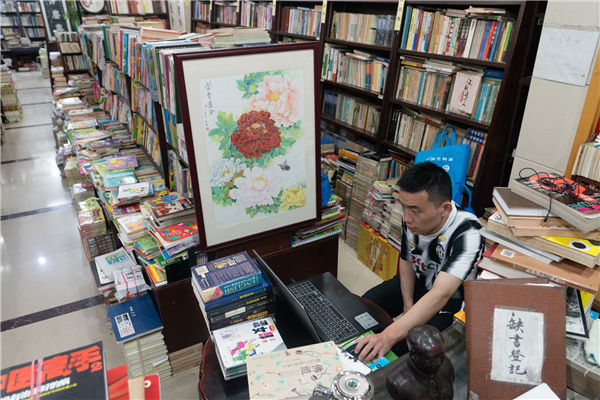The charm of old, yellowed pages
By Cao Chen in Shanghai | China Daily | Updated: 2020-09-04 07:20

"Interestingly, the original owner of the book was the famous Chinese poet Dai Wangshu, and a subsequent owner was his friend-the writer Shi Zhecun," says Zhu. He ended up buying the book from a friend in 2017.
"I call this destiny. My life and the stories of celebrities I admire are somehow intertwined through this book."
For others, like Zhao Guozhong, the charm of secondhand bookstores lies in the thrill of exploration.
"I never know what I will find when foraging through secondhand bookstores. That's where the fun lies," says Zhao, who likes collecting literature books published in the Minguo period (1912-49).
Xu Zihao, owner of a culture company in Shanghai, says that while foreign embellishments on antiques might devalue the artifact, such additions could at times add even more value to old books.
One example is his copy of a book on plant systems that was written by famous Chinese botanist Lu Kaiyun. His copy, which was printed in 1934 for academic purposes only, features annotations made by another renowned botanist, Hu Xiansu.
"There are more than 800 notes in this 388-page book. In the version that was made available to the public in 1936, you can see that the original book was edited according to these notes. This shows Hu's expertise and his dedication to the unification of botanical terms. The value of such a book is unrivalled," says Xu, who compares amassing a collection of secondhand books to collecting antiques.
"Books outlive humans, and we are just temporary owners," he adds.
"A cheap secondhand book today could very well be a piece of treasure tomorrow."
























